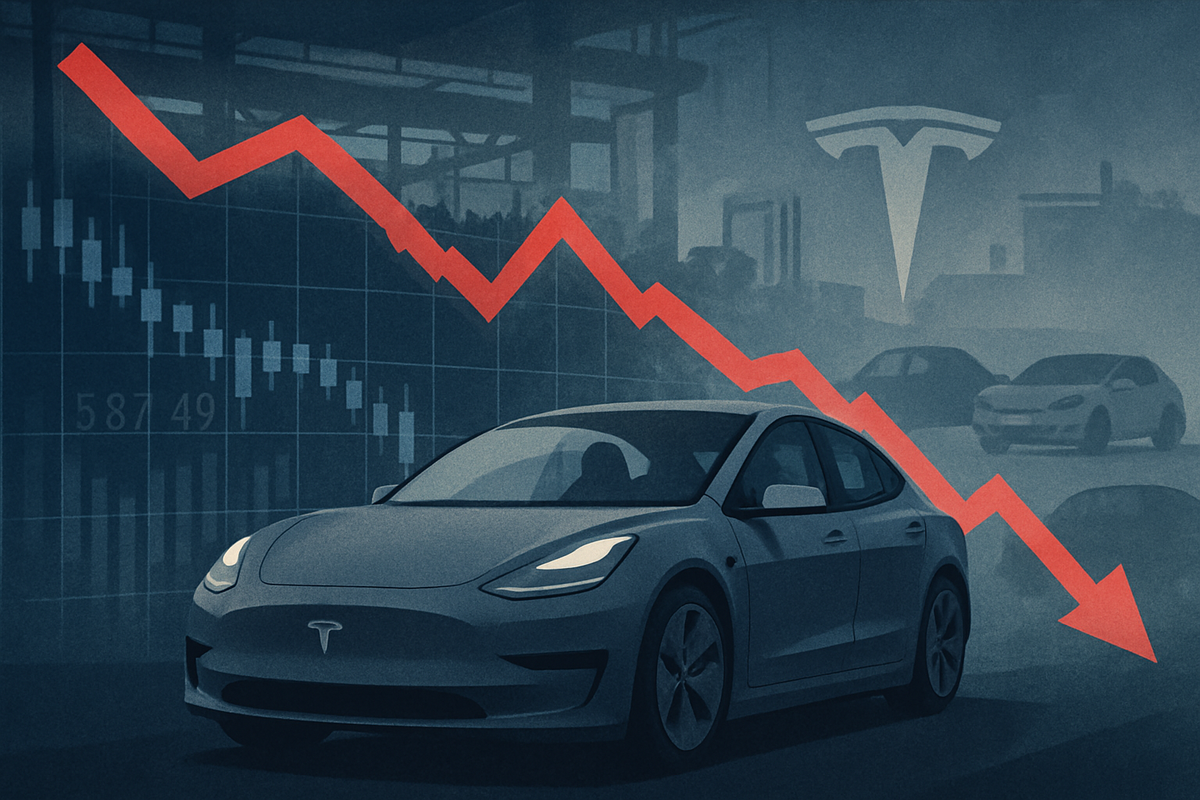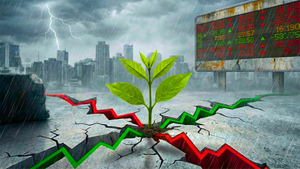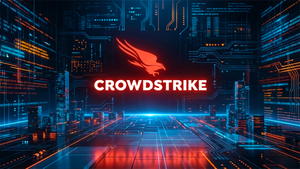
October 13, 2025 – The closing bell today marked a significant downturn for electric vehicle giant Tesla (NASDAQ: TSLA), as its shares plummeted, positioning the company as one of the market's bottom performers. The sharp decline appears to be a confluence of emerging concerns over production bottlenecks at its key Gigafactories, particularly in Berlin, coupled with fresh data signaling a sharper-than-expected slowdown in electric vehicle (EV) demand in crucial international markets. This one-two punch has sent ripples through the market, prompting investors to re-evaluate Tesla's near-term growth trajectory and profitability outlook.
The immediate implications of today's slide are palpable, with negative market sentiment surrounding TSLA intensifying. Analysts are already signaling potential downgrades, and the financial media has turned its spotlight on the company, scrutinizing its operational efficiencies and market strategy. For a company that has historically defied conventional market logic, today's performance serves as a stark reminder of the increasing pressures within the rapidly evolving automotive landscape.
Unpacking Tesla's Challenging Day: Production Hurdles and Market Headwinds
Today's significant move in Tesla (NASDAQ: TSLA) stock can be attributed to a series of interconnected events and emerging market trends. The primary driver appears to be reports surfacing earlier today concerning unexpected production bottlenecks at Tesla's Gigafactory Berlin. While specific details remain under wraps, whispers of component shortages, particularly advanced semiconductors and specialized battery cells, have circulated, threatening to impede the ramp-up of its highly anticipated next-generation vehicle production. This has directly impacted delivery forecasts for the upcoming quarter, leading to investor apprehension.
Adding to the company's woes, fresh economic indicators from key markets, most notably China, revealed a surprising deceleration in overall EV demand, with the premium segment, where Tesla largely operates, experiencing a more pronounced slowdown. This data has reignited long-standing concerns about market saturation and the sustainability of Tesla's aggressive growth targets in the face of a maturing EV market. The timeline of these events suggests a confluence of factors culminating today; the production issues in Germany, which have been a simmering concern for weeks, seem to have been exacerbated by the latest demand figures, creating a perfect storm for bearish sentiment.
Key players involved in this unfolding narrative include Tesla's executive leadership, particularly CEO Elon Musk, whose public statements and production targets are always under intense scrutiny. The global supply chain, including semiconductor manufacturers and raw material suppliers, also plays a crucial role, as their output directly impacts Tesla's manufacturing capabilities. Initial market reactions have been swift and decisive, with institutional investors showing signs of de-risking their positions, and retail investors reacting to the negative news flow. The broader automotive industry is watching closely, as Tesla's performance often serves as a barometer for the health of the EV sector as a whole.
The Shifting Sands: Winners and Losers in the Wake of Tesla's Downturn
Today's significant downturn for Tesla (NASDAQ: TSLA) has immediate and potential long-term implications for a host of companies across the automotive and technology sectors. Clearly, Tesla itself stands as the primary 'loser' in this scenario, facing a decline in market capitalization, increased investor scrutiny, and the challenge of addressing both production inefficiencies and softening demand. The company's ability to quickly resolve its manufacturing bottlenecks and stimulate demand in a more competitive environment will be critical to its recovery. Furthermore, any suppliers heavily reliant on Tesla's production volume, particularly those providing specialized components for its newer models, could also experience headwinds if production targets are consistently missed.
Conversely, traditional automakers that have heavily invested in their own EV initiatives stand to gain from Tesla's struggles. Companies like General Motors (NYSE: GM), Ford (NYSE: F), Volkswagen (XETRA: VOW3), and Hyundai (KRX: 005380) have been aggressively rolling out new EV models across various price points and segments. A perceived stumble by Tesla could allow these competitors to capture greater market share, especially if they can demonstrate more robust supply chains and consistent production. Their diverse product portfolios, which often include internal combustion engine (ICE) vehicles, also provide a buffer against a pure EV market slowdown, unlike Tesla's singular focus.
Moreover, emerging EV manufacturers, such as Rivian (NASDAQ: RIVN) and Lucid Group (NASDAQ: LCID), although still operating on a smaller scale, could also see an opportunity. While they face their own production challenges, any dent in Tesla's dominant market narrative could make their offerings more appealing to a segment of consumers looking for alternatives. The competitive landscape is intensifying, and any perceived weakness from the market leader creates an opening for rivals to accelerate their growth and differentiate their products, potentially attracting investors seeking the next growth story in the EV space.
Broader Implications: A Shifting EV Landscape and Regulatory Shadows
Tesla's (NASDAQ: TSLA) recent struggles are not isolated incidents but rather symptomatic of broader, significant shifts within the global electric vehicle industry. This event underscores a transition from a phase of rapid, almost unbridled growth, often spearheaded by Tesla's innovation, to a more mature and intensely competitive market. The initial novelty of EVs is giving way to consumer demands for variety, affordability, and proven reliability, areas where legacy automakers and new entrants are rapidly improving. This event fits squarely into the trend of market normalization, where even the dominant player faces the realities of supply chain complexities, evolving consumer preferences, and fierce competition.
The ripple effects of Tesla's production woes and demand concerns are likely to extend across the entire EV ecosystem. Competitors, as mentioned, stand to gain market share, but the event could also trigger a broader re-evaluation of investment strategies within the EV sector. Partners, particularly those involved in charging infrastructure and battery technology, might experience shifts in demand or strategic priorities if Tesla adjusts its expansion plans. Furthermore, the reports of a preliminary inquiry by the National Highway Traffic Safety Administration (NHTSA) into recent incidents involving Tesla’s Full Self-Driving (FSD) Beta software highlight growing regulatory scrutiny. This could lead to stricter safety standards, more rigorous testing requirements for autonomous driving systems, and potentially impact the rollout and profitability of advanced driver-assistance features across the industry.
Historically, periods of rapid technological adoption are often followed by consolidation and increased regulatory oversight. Comparisons can be drawn to the early days of the internet or the personal computing boom, where initial market leaders faced significant challenges as the industry matured and competitors caught up. This situation with Tesla could serve as a historical precedent, indicating that even groundbreaking innovation requires robust operational execution and adaptability to sustained competitive and regulatory pressures. The market is increasingly demanding not just technological prowess but also consistent delivery and a clear path to profitability in a crowded field.
What Comes Next: Navigating a More Complex Road Ahead
Looking ahead, the short-term outlook for Tesla (NASDAQ: TSLA) will heavily depend on its ability to swiftly address the reported production bottlenecks at Gigafactory Berlin and clarify its delivery forecasts. Any concrete steps taken to improve manufacturing efficiency and supply chain resilience will be closely watched by investors. In the immediate future, market sentiment will likely remain volatile, with any news regarding production targets, demand trends in key markets, or regulatory updates having a magnified impact on the stock price. The company may need to consider strategic pivots, such as adjusting pricing strategies or accelerating the introduction of more affordable models, to stimulate demand in a more price-sensitive market.
In the long term, Tesla faces a critical juncture. The company's strategic adaptations will be paramount. This could involve further diversification of its manufacturing base to mitigate single-point-of-failure risks, deeper integration with its supply chain partners, or even a re-evaluation of its product roadmap to better align with evolving global consumer preferences. The market opportunities that may emerge for Tesla include leveraging its extensive Supercharger network as a competitive advantage or expanding into new energy solutions and AI-driven services that complement its automotive offerings. However, significant challenges persist, including the sustained intensification of competition, the potential for increased regulatory oversight on its autonomous driving technology, and the inherent volatility of raw material costs.
Potential scenarios range from a rapid recovery, should Tesla quickly resolve its production issues and re-energize demand through innovative product launches or aggressive pricing, to a more prolonged period of stagnation if operational challenges persist and competitors continue to chip away at market share. Another scenario involves a strategic shift towards a higher-margin software and services model, leveraging its existing fleet, which could stabilize revenue streams even if vehicle sales growth moderates. Investors should prepare for a period of heightened strategic activity and potentially significant announcements from Tesla as it navigates these complex market dynamics.
Wrap-Up: A Pivotal Moment for Tesla and the EV Market
Today's trading session for Tesla (NASDAQ: TSLA) encapsulates a pivotal moment not just for the company, but for the broader electric vehicle industry. The key takeaways from this event highlight the increasing importance of operational excellence, supply chain resilience, and adaptable market strategies in a rapidly maturing sector. Gone are the days when innovation alone could guarantee exponential growth; consistent execution and responsiveness to market dynamics are now paramount. Tesla's recent downturn serves as a powerful reminder that even market leaders are susceptible to the pressures of production hurdles, softening demand, and intensifying competition.
Moving forward, the market will be closely assessing Tesla's ability to demonstrate tangible progress on several fronts. Investors should watch for concrete announcements regarding the resolution of production bottlenecks, revised delivery guidance that aligns with current market realities, and any strategic shifts aimed at bolstering demand or improving profitability. The ongoing regulatory scrutiny of its FSD technology also remains a critical factor, with potential implications for its widespread adoption and revenue generation.
Ultimately, the significance of this event lies in its potential to recalibrate expectations for the entire EV market. It signals a shift towards a more competitive and, arguably, more rational investment environment where fundamental business metrics will increasingly dictate valuations. The lasting impact could be a more diversified EV landscape, with multiple strong players vying for market share, and a greater emphasis on sustainable growth models. Investors should continue to monitor industry-wide trends, competitor performance, and regulatory developments in the coming months, as these will collectively shape the future trajectory of the electric vehicle revolution.
This content is intended for informational purposes only and is not financial advice





